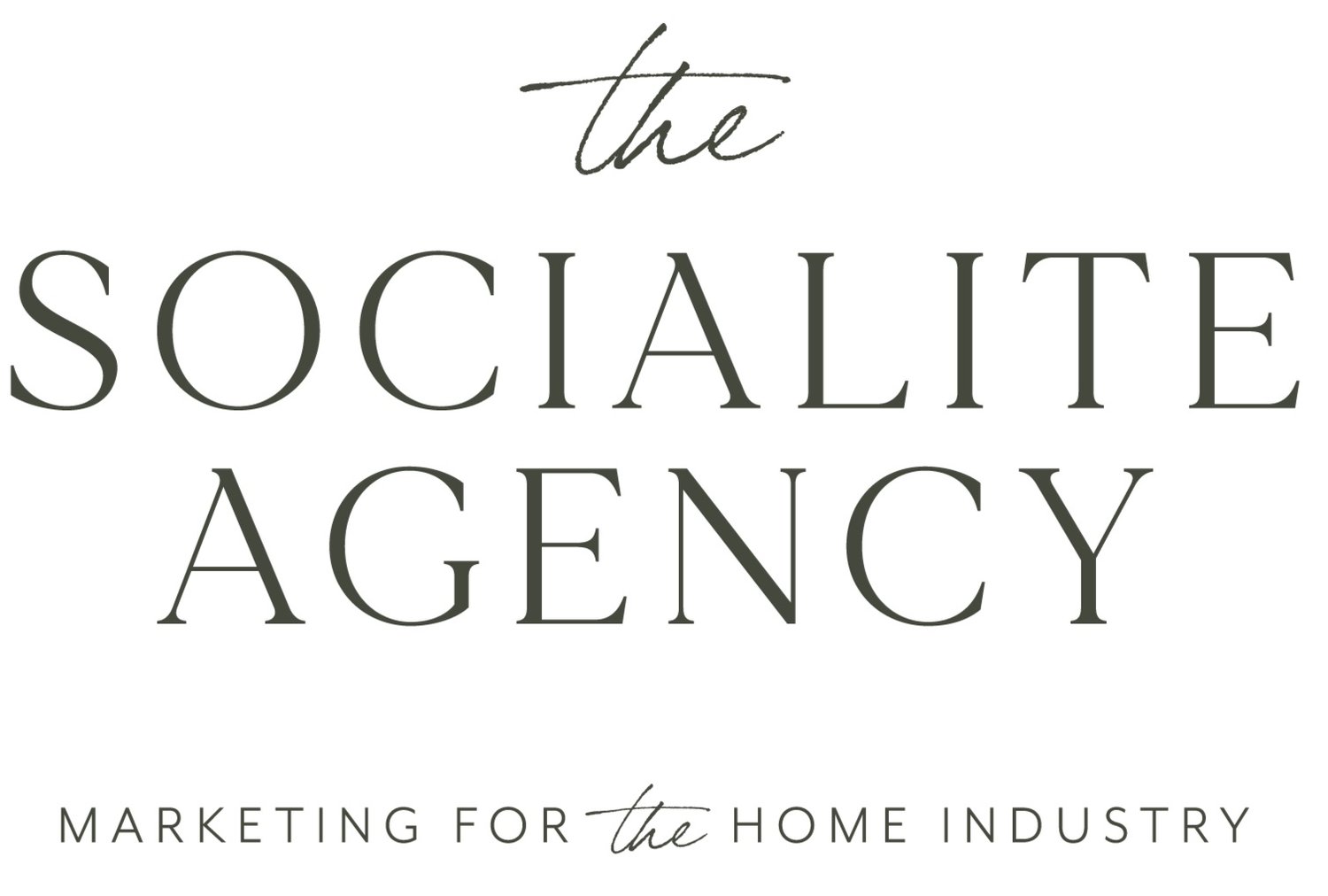10 Initial Questions to Ask Your Website Designer before Getting a New Interior Design Website
As an interior designer or home stager, your website is both an online portfolio and a salesperson who never sleeps - or at least- it should be. If you are looking for a new website and trying to sort through the dozens of website designers vying for your attention, you'd do well to narrow them down with a quick interview process.
The process I'm sharing with you today includes 10 primary questions to ask; questions that will no doubt cause you to come up with more of your own. To that, I say, well done. Even if you never lift a finger to modify or update your own website, you should at least have a solid understanding of how it works and its capabilities, as well as have definitive answers on what is and is not included.
How to Vet Your Website Designer & Get the Site You Want
After personally designing over eighty (or is it ninety? I lost count a long time ago...) websites throughout my career to-date, I've been able to accumulate a list of the top concerns and priorities that interior design firms, home staging companies, and window treatment businesses tend to have when approaching their digital footprint, plus a few other questions they tend not to ask - but should - before signing the contract.
First, let's back up a minute to make sure we're on the same page. When a business owner in the home industry (that's you!) sets their sights on a new website, they shouldn't even begin to rattle off the questions I'm about to list unless the website designer has met these qualifications:
Their own website is aesthetically pleasing, easy to use, and simple to understand
They have a portfolio of past website design projects (and you like their work)
They have a clearly outlined client process and an easy way to get detailed pricing
If your potential website designer is the "tech guy" from the company you used to work with or your best friend's college student daughter, be wary. Quality website design doesn't come from someone who knows how to use a computer any more than people who obsessively rearrange furniture make for good interior designers. Be prepared to spend no less than two thousand dollars for a professional website and be prepared to book your project at least a month from the day you initially contact the designer.
To put this in perspective, our website design offerings here at Socialite are often booked three to five months in advance, with a down payment required to hold your place in line. That waiting period gives our clients time to have more professional portfolio images taken, conduct a lifestyle photoshoot with their team, create online packages, and/or prepare their products for online sale.
If you've found a few website designers who meet the qualifications above (even if they are booked out - a good sign!), proceed with asking them the following questions via phone or email.
10 Initial Questions to Ask Your Website Designer
Do you specialize in or at least have experience in website design for the home industry?
Choosing a website designer who is already familiar with your industry will save you many hours of frustration and hundreds of large and small revisions. Just as a homeowner wouldn't hire a commercial interior designer to redo their kitchen, you shouldn't hire a website designer who doesn't understand the nuances of what you do, from service offerings to client culture.
What search engine optimization (SEO) do you include in the actual design of the website?
Some website designers include SEO in the website design from step one (like we do) whereas others will tell you that SEO must be added after the website design is complete. There is no wrong way to go about this but there is a cost differential. To properly add SEO to an existing website, certain aspects of the site will likely need to be redone, essentially duplicating or redoing the work that you had just paid someone else to do. This can be frustrating for some business owners if they realize it too late.
Are your websites designed for converting leads, not just for looking pretty?
This one is a huge pet peeve of mine. Those gorgeous website templates you might find on Pinterest or Etsy aren't necessarily functional. I can't approach that with a blanket statement of judgment, obviously, but I often find that those templates and the custom sites that are often similar tend to focus more on the business and completely ignore the ideal client, from the design of the home page to the copywriting - and they waste space on information that doesn't help your ideal client make their buying decision. Ugh. I equate a pretty website that can't convert leads to a pair of stilettos that hurt too much to wear. They look nice, but they aren't functional and result in buyer's remorse...and another redesign.
Do you write the copy? If yes, do you optimize it for SEO? If no, can you refer me to a website copywriter?
Not all website designers will write the content for your website. This is something we always include and, for years, I never stopped to consider that such a thing wasn't standard. To me, the design of a website and the verbiage of a website are interwoven. Additionally, that website copy must be optimized for SEO or it simply can't do its job.
If your website designer refers you to a third party copywriter, you will need to speak with that copywriter directly regarding any SEO concerns you might have.
What parameters should my photos meet in order to work best with the new website?
Your portfolio images and lifestyle images are what will make the design of your website really "pop," for lack of a better term. If you are just getting started, simply photograph a space in your own home that you've designed or staged, or a window treatment that you made for yourself. Something is better than nothing.
Ask your website designer what pixel size they prefer (usually no more than 2,000 pixels wide) and whether they will be compressing the images for loading speed. Too many big images can really slow down your website, which can actually lower your SEO score.
If stock photos must be used, will they be curated to match the aesthetic of the website?
There is nothing wrong with using a few stock photos, especially if you are illustrating your design process or some other element of the site that isn't your actual portfolio. However, those stock photos shouldn't be glaringly obvious. Instead, they should feel curated and flow nicely with the aesthetic of your actual portfolio and brand color palette.
How many revisions are included in our website design contract and what constitutes a revision?
Communication is so important during the revision phase. Make sure you understand how much back-and-forth you can have with your designer before it exceeds their scope of work. If you want to make changes that constitute extra revisions, ask your designer how those will be handled and billed.
Will my website include the ability to sell online packages, book appointments, etc.?
While these are common website features, things like online physical product shops can significantly increase the cost of your website if you request them mid-project instead of clearly stating your expectations from the start. Your website designer should be asking you which pages and features you want for your new website long before the contract is signed. If they don't, you need to initiate that conversation.
Will you be charging me a monthly ongoing fee once the website design is complete?
Quite a few website designers will charge a monthly ongoing fee. I can't even begin to summarize what those fees might cover, as it can vary greatly depending on the services they are providing and the platform you are using. I can only speak for my team as website designers. In our case, we never charge ongoing fees. There is simply no need for it.
If yes, what do those charges cover, and are they optional?
If you are already paying a hosting platform for your domain (GoDaddy, BlueHost, etc.), there really isn't any need to pay ongoing fees unless you've put your website designer on retainer to handle any updates you might need to make each month. In the case of a monthly retainer, you should allot for paying around an hour of their time each month and keep track of whether you use it and whether you can terminate that agreement if it becomes necessary.
P.S. If your website designer is trying to charge you for ongoing "Google maintenance" or SEO, run the other way. The only way they can provide those services to you is if they are managing your social media and/or blogging for you. The SEO of your website itself doesn't need to be updated monthly in any other way.
Will you be available to make future updates to my website?
This might be covered in your monthly retainer conversation, but if it isn't, you need to address it. Most website designers will prioritize website updates and changes for past clients. Be sure to ask about the average turnaround time and hourly cost. Also, ask them if they'll be providing a precise estimate prior to the work or if they can only give you a ballpark number.
Resources
Ready to get a new website? Browse our website design package.


